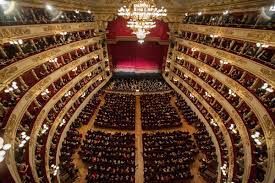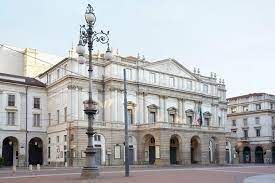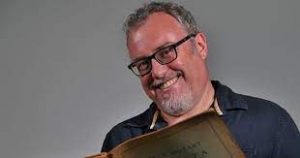Luca Tieppo
It is as ever, a pleasure to share music and ideas with you and this month we are featuring Luca Tieppo. I thoroughly enjoyed our conversation and his insights below:
Karen :Q1. I know you have a love for both Opera and Ballet. Can you define what skills differentiate the two jobs as a repetituer and do you think it is something that few (or many) pianists can achieve?
Luca:

 I have always been fascinated by theatre, and the dramaturgy behind the shows. And I have always wanted to be a composer, since when at 4 I used to hum my own arrangements of popular children’s tunes… So working in theatre has always been my ambition. When I started, not much older than a teenager, first for ballet at La Scala and then for opera in Monte-Carlo, I discovered a world of opportunities and possibilities as a pianist. Thirty-something years on, I am still fascinated by the different skill sets that each job requires. A pianist for ballet needs to be much more flexible, both musically and mentally; I’m thinking for example of the ability to improvise or adapt the music, or of how dancers speak a different “language” that one must understand and interpret. Even when rehearsing the repertoire, a pianist needs to sustain the dancer with fewer but clear and firm inputs. In opera, on the other hand, one has to be able to replicate the orchestra, often filling in the gaps of the piano score, supporting the singers with different colours etc. Adaptation or improvisation are not only not required but also inconceivable..
I have always been fascinated by theatre, and the dramaturgy behind the shows. And I have always wanted to be a composer, since when at 4 I used to hum my own arrangements of popular children’s tunes… So working in theatre has always been my ambition. When I started, not much older than a teenager, first for ballet at La Scala and then for opera in Monte-Carlo, I discovered a world of opportunities and possibilities as a pianist. Thirty-something years on, I am still fascinated by the different skill sets that each job requires. A pianist for ballet needs to be much more flexible, both musically and mentally; I’m thinking for example of the ability to improvise or adapt the music, or of how dancers speak a different “language” that one must understand and interpret. Even when rehearsing the repertoire, a pianist needs to sustain the dancer with fewer but clear and firm inputs. In opera, on the other hand, one has to be able to replicate the orchestra, often filling in the gaps of the piano score, supporting the singers with different colours etc. Adaptation or improvisation are not only not required but also inconceivable..
